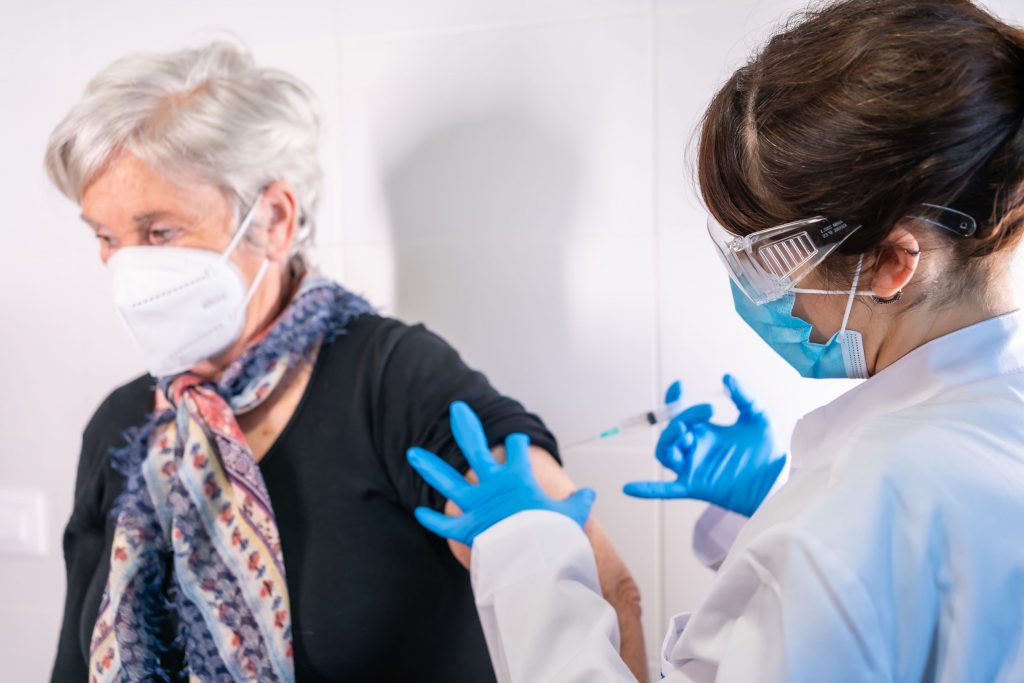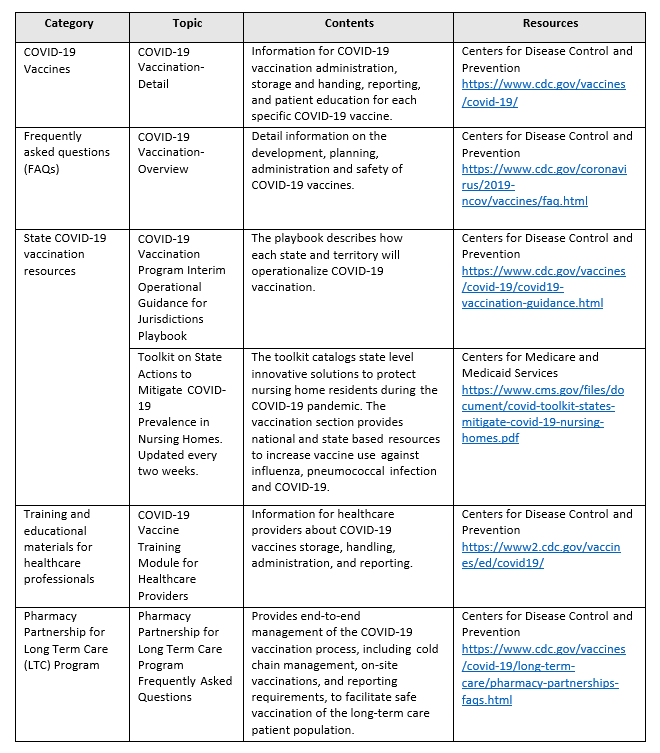Leadership Lesson: COVID-19 Vaccine Acceptance
This month’s leadership lesson is from Pauline Kinney, RN, MA, LNHA, Senior Director of Healthcare Quality Improvement.

As a leader in health care charged with keeping residents and staff safe, COVID-19 has brought many challenges. Although the rapid development of the COVID-19 vaccine is a positive development, it’s important to consider how to best operationalize vaccine distribution and maximize staff and resident vaccine acceptance.
Vaccine hesitancy among staff and residents manifests as either delayed acceptance or refusal of the vaccine despite its availability. As the staff and residents encompass a wide range of individuals, the task for leaders is to decide how to mitigate vaccine hesitancy and avoid an inconsistent vaccination outcome. Meetings with NH staff, residents, families, and leaders in the field has revealed a variety of reasons for delayed acceptance:
- Concern about possible side effects
- Concern about how fast the vaccines were developed, or concern that it is too new and there is a lack of comprehensive data
- Lack of trust in the government
- Concern of sterility
- Concern of harm to pregnant women and their unborn child
- Lack of trust of vaccines in general
- Worry over contracting COVID-19 from the vaccine
- Confusion over social media anti-vaccination messaging and discourse
- “Wait and see” attitude
Confidence building and trust in leadership is important. Consistent practice and messaging will assist in building essential trust, thus alleviating staff and resident fears. Potential strategies include:
- Leadership buy-in and positive role model activities
- Unique and direct communication and messaging
- Consistent vaccination protocols and recommendations for use
- Complete and accurate information gathering
- Avoidance of misinformation regarding risk-benefit and side effects etc.
- Increase understanding through highlighting vaccine safety education from verified sources; all are significant first steps in working to avoid vaccine hesitancy.
In short: Be proactive, set an example, listen and learn from staff and residents establish direct two-way communication, and support consistent education through reliable and validated sources.
To assist in finding reliable information we’ve include a few resources you may find helpful.
Quick Guide to Information on the New COVID-19 Vaccinations


